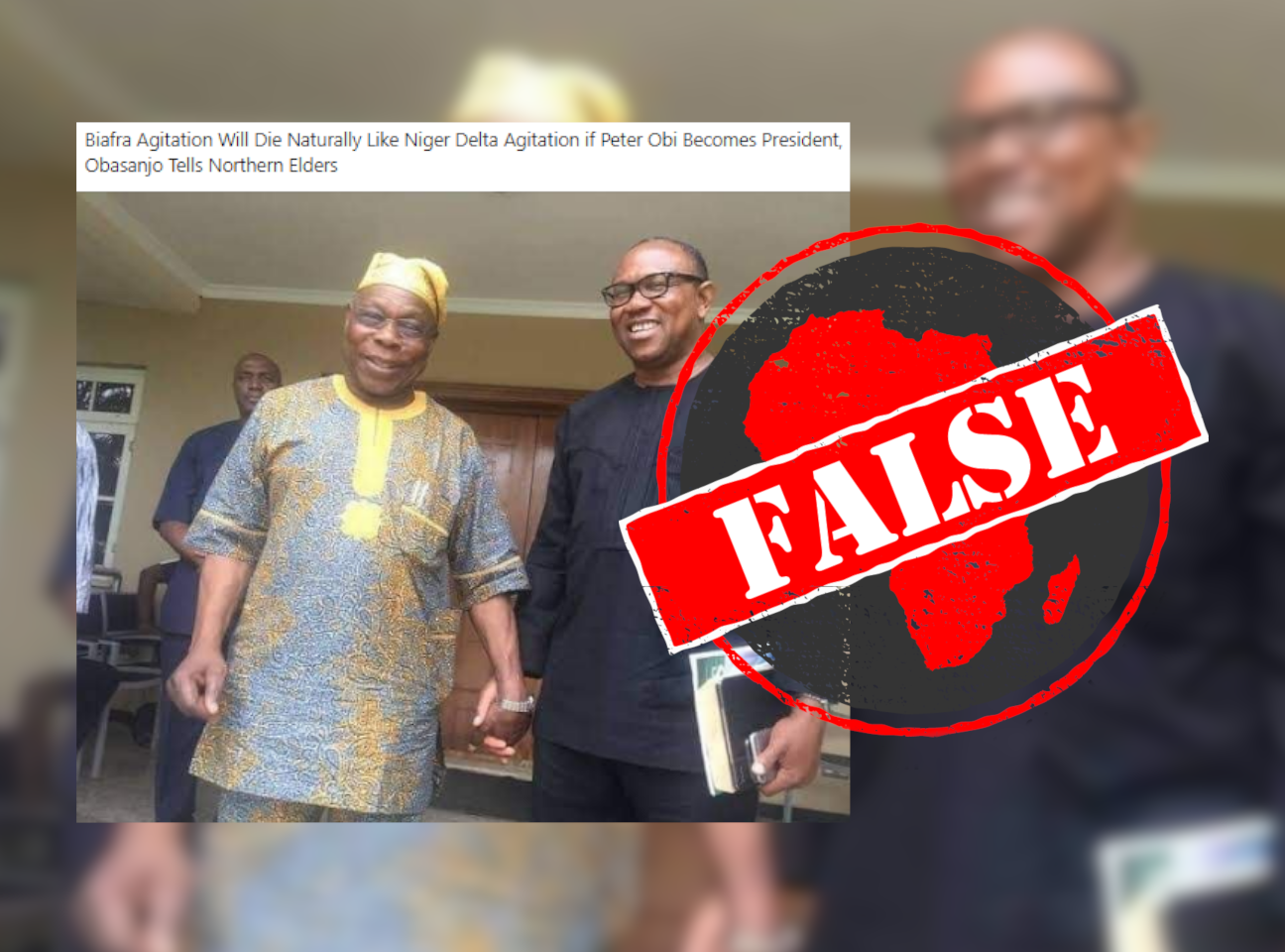A post shared on Facebook in Nigeria claims Nigeria’s former president Olusegun Obasanjo has said Biafra “agitation” would “die naturally like the Niger Delta agitation” if Peter Obi became the president.
Peter Obi is the presidential candidate for the Labour Party in the Nigerian general elections scheduled for 2023.
It reads: “Biafra Agitation Will Die Naturally Like Niger Delta Agitation if Peter Obi Becomes President, Obasanjo Tells Northern Elders.”
Biafra is a region in southeastern Nigeria. Its secession in 1967 sparked a civil war and calls for its independence from sympathisers continue.
Nigeria’s oil-rich Niger Delta region grapples with insecurity, including militancy, piracy and oil theft. The effect of decades of crude oil spills in the area is also a cause of agitation among different groups.
The post suggests these problems could easily be resolved if Obi becomes president in 2023 because he is from the region.
We found similar claims on Facebook here, here and here.
But did Obasanjo make this statement? We checked.

No evidence Obasanjo said anything like this
The Facebook post does not mention where or when Obasanjo is meant to have made this statement. This kind of lack of detail is often a red flag that a quote circulating on social media has been fabricated.
On 14 August, Obi and his running mate, Yusuf Datti Baba-Ahmed, visited Obasanjo.
There were no reports in any credible mainstream media that Obasanjo made the comment. If a former president said something like this, we would expect the media to report on it.
As Nigeria’s 2023 elections approach, Africa Check is seeing an increasing number of quotes and comments falsely attributed to key political figures. This may distort political debate online and in real life, and so reduce voters’ ability to make informed choices.
Republish our content for free
For publishers: what to do if your post is rated false
A fact-checker has rated your Facebook or Instagram post as “false”, “altered”, “partly false” or “missing context”. This could have serious consequences. What do you do?
Click on our guide for the steps you should follow.
Publishers guideAfrica Check teams up with Facebook
Africa Check is a partner in Meta's third-party fact-checking programme to help stop the spread of false information on social media.
The content we rate as “false” will be downgraded on Facebook and Instagram. This means fewer people will see it.
You can also help identify false information on Facebook. This guide explains how.


Add new comment